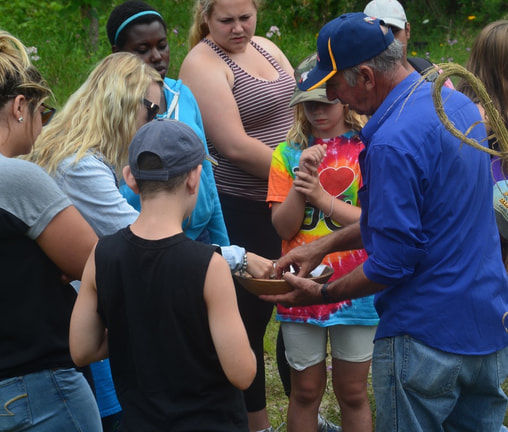Cross-Cultural Sharing
Bringing both Indigenous ways of knowing and western science to the table to solve problems of environmental degradation is something that the world recognized at the Earth Summit in 1992.
In Canada determining strategies to protect species at risk is complimented both federally and in some cases provincially by applying both Indigenous knowledge and western science. The University of Cape Breton, under the leadership of Albert and Murdina Marshall, established the Integrated Science Department that combines both disciplines. Albert Marshall spoke at the Plenty Canada American Eel workshop in 2008. He referred to “Two Eyed Seeing” a concept later caught in the Ontario American Eel Recovery strategy.
In Canada determining strategies to protect species at risk is complimented both federally and in some cases provincially by applying both Indigenous knowledge and western science. The University of Cape Breton, under the leadership of Albert and Murdina Marshall, established the Integrated Science Department that combines both disciplines. Albert Marshall spoke at the Plenty Canada American Eel workshop in 2008. He referred to “Two Eyed Seeing” a concept later caught in the Ontario American Eel Recovery strategy.
Base your approach to collaboration on an Indigenous model, such as the Great Way of Peace: equity, respect and empowerment."
— Dr. Henry Lickers

